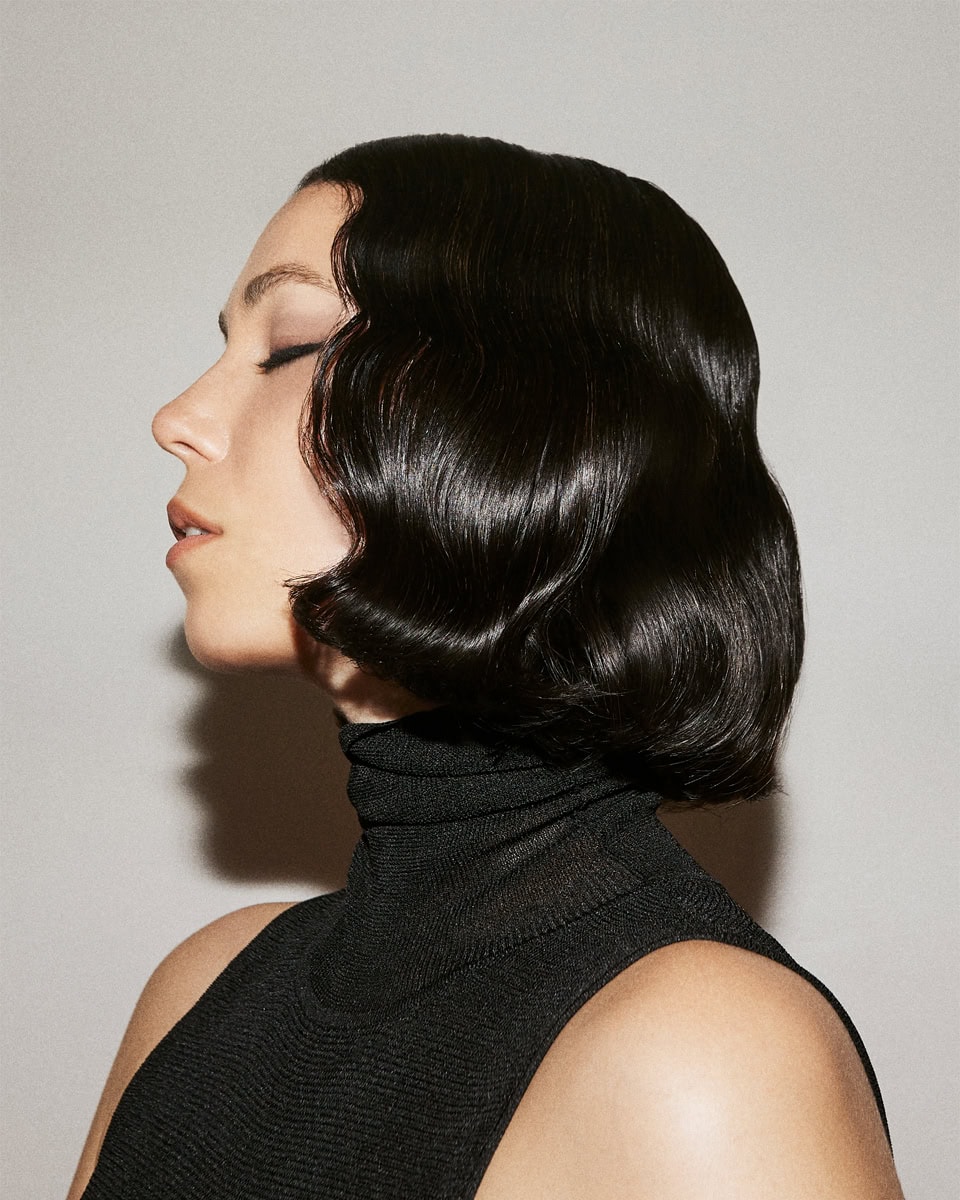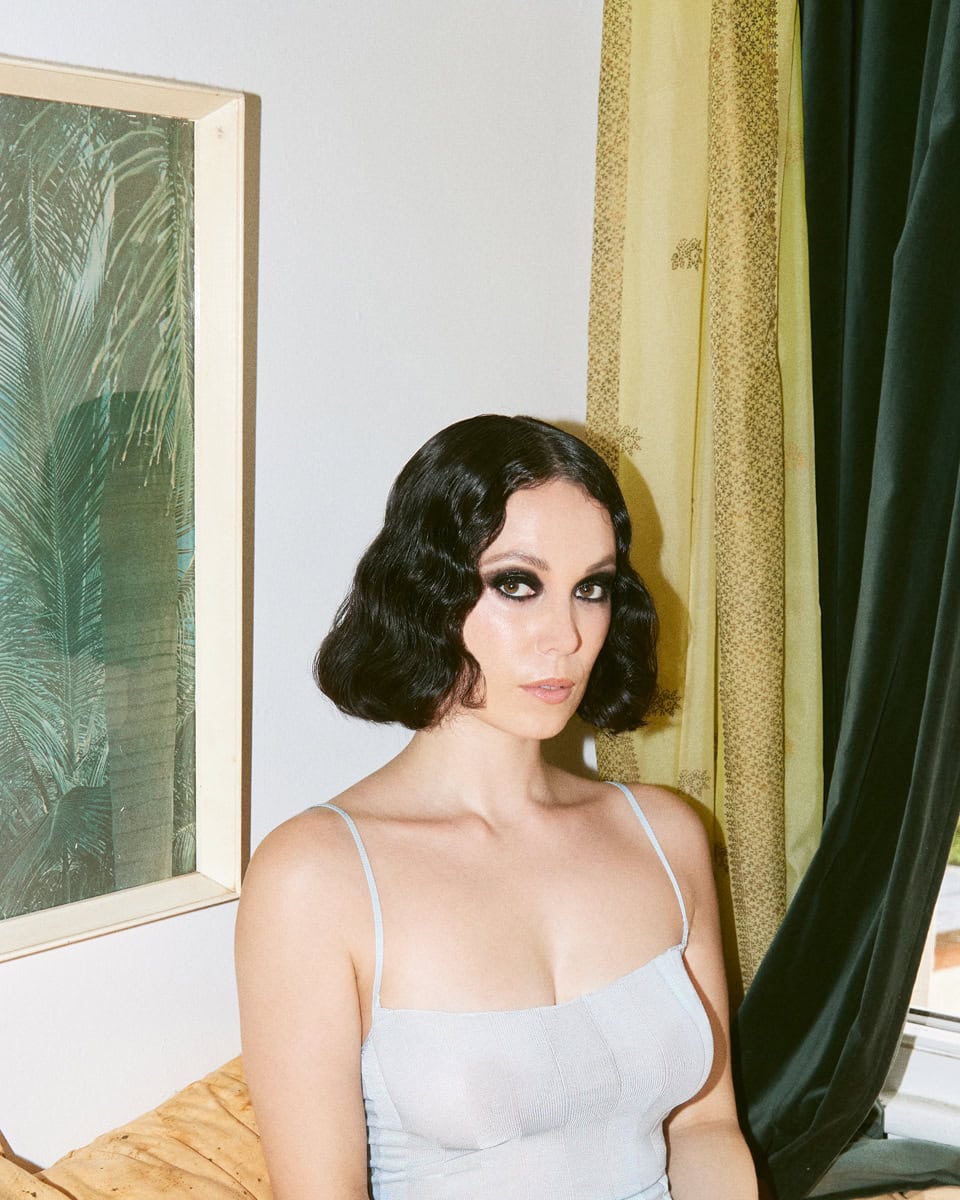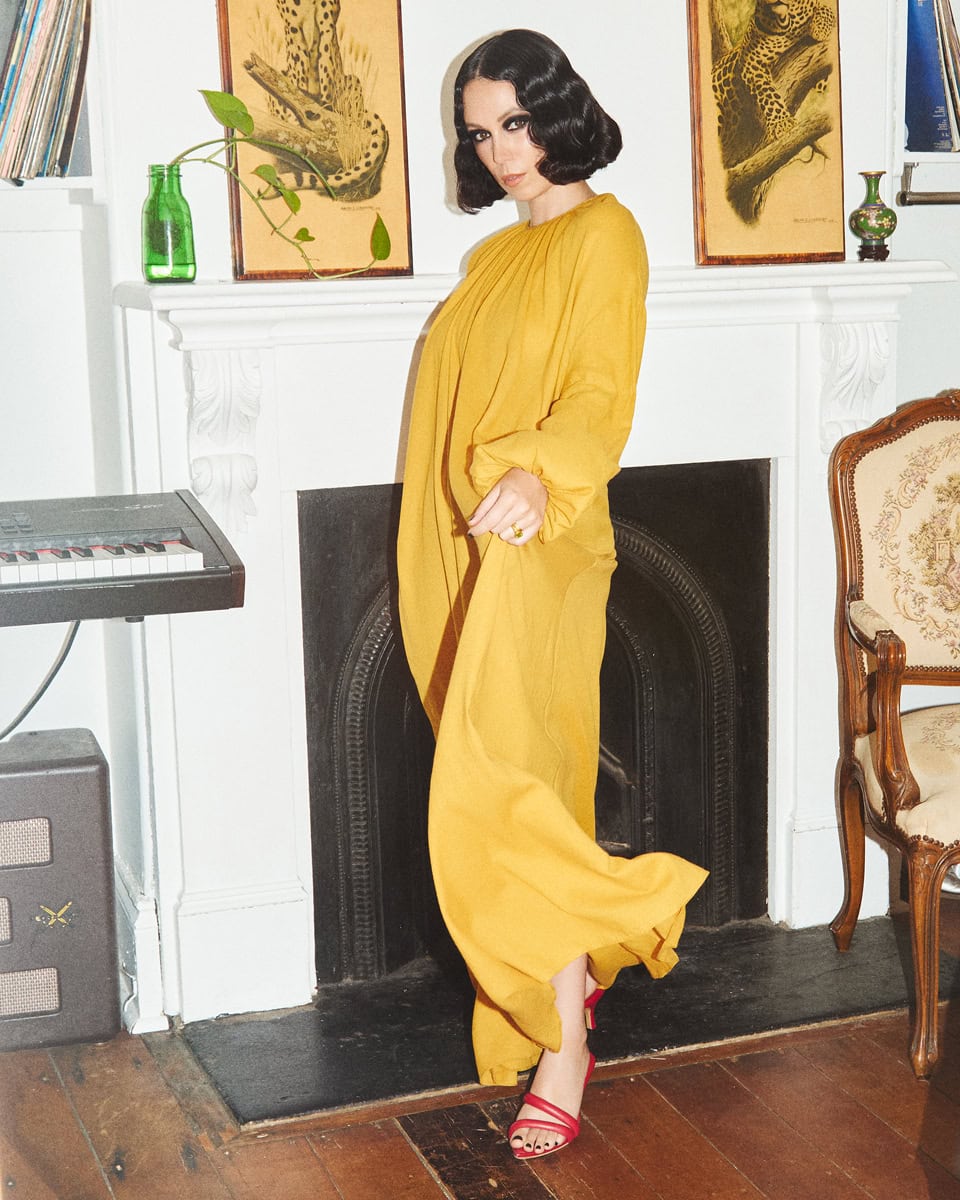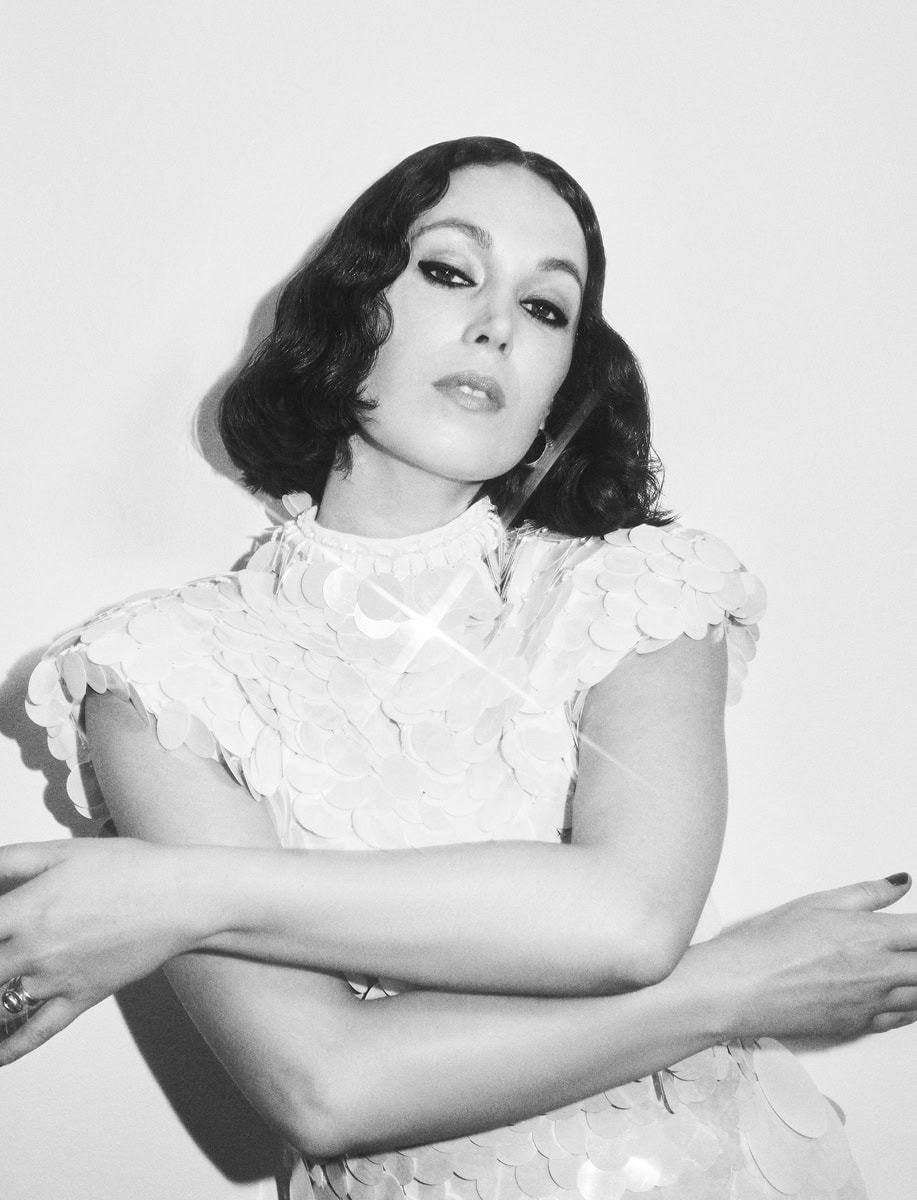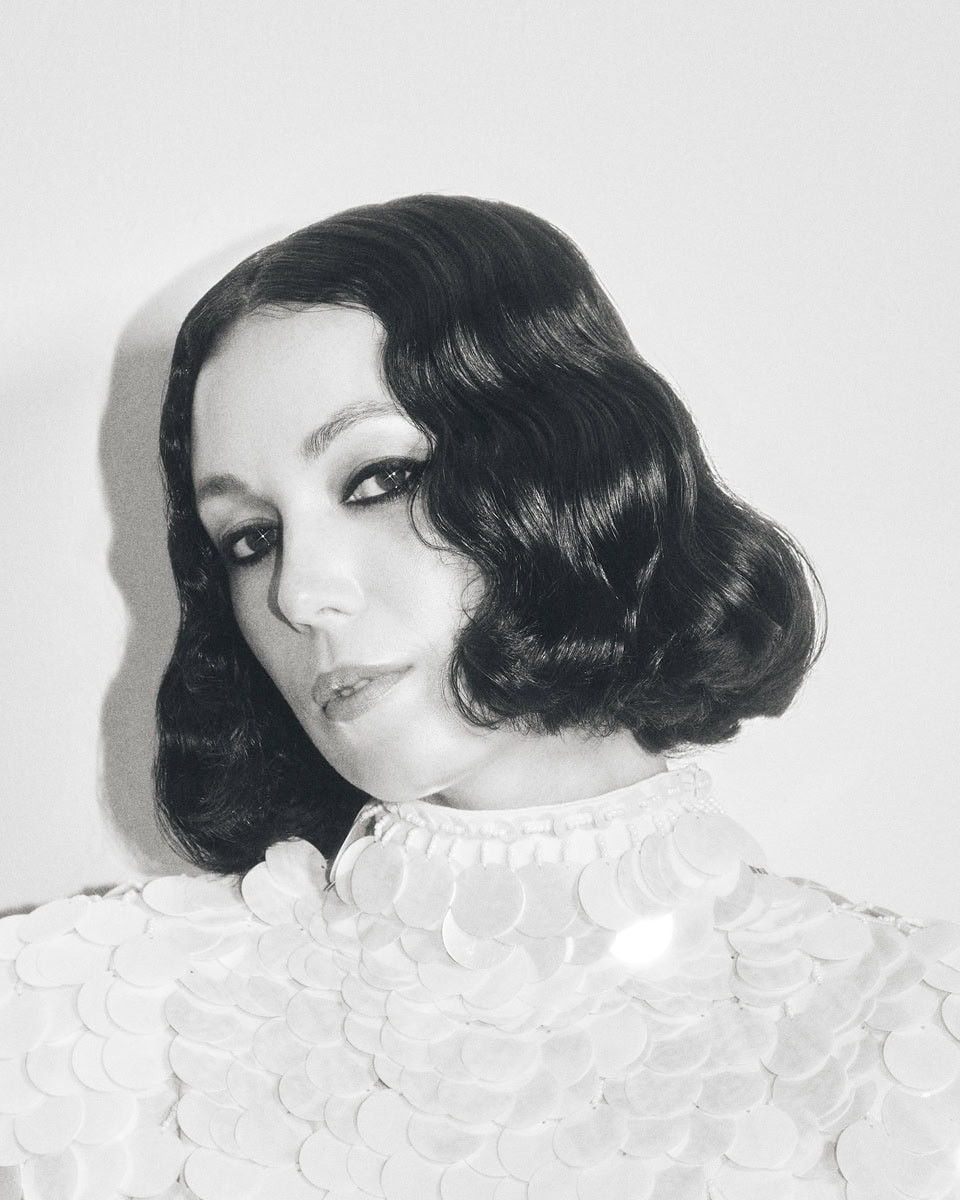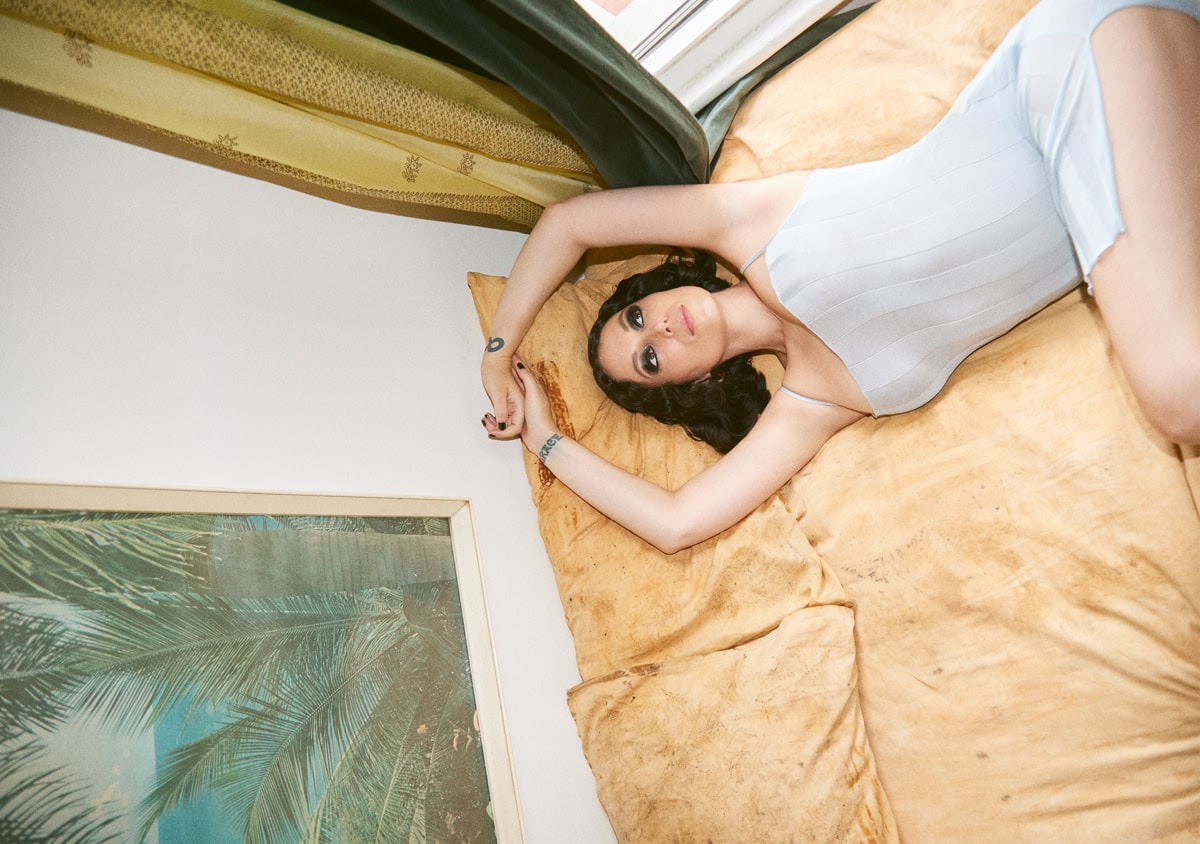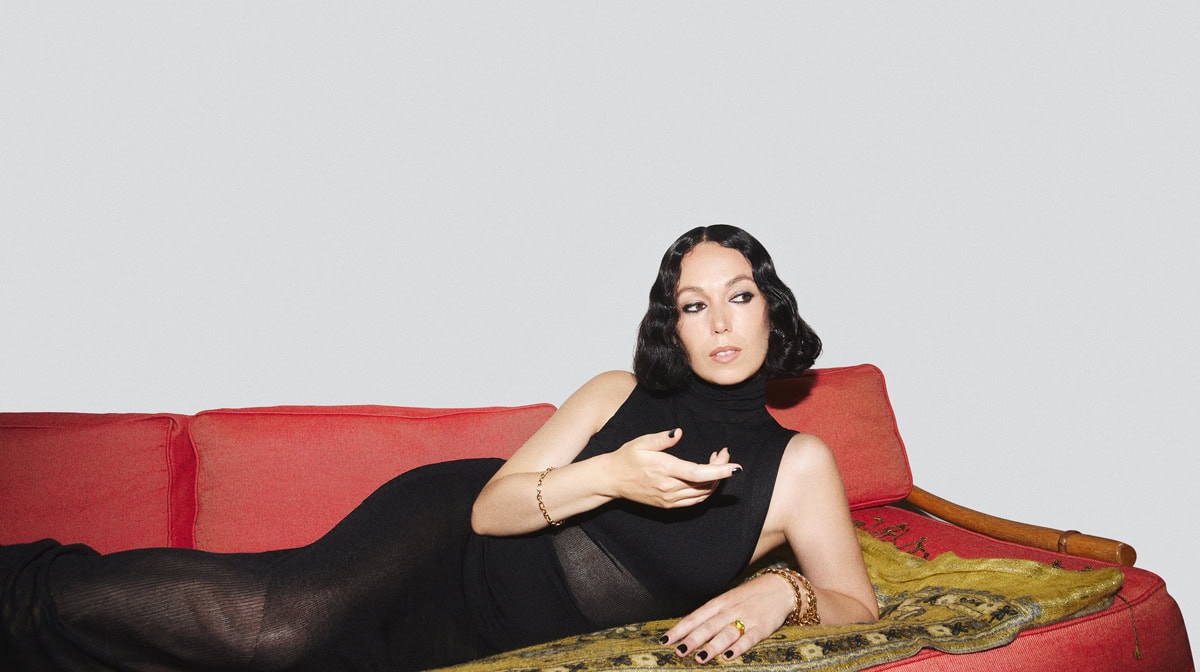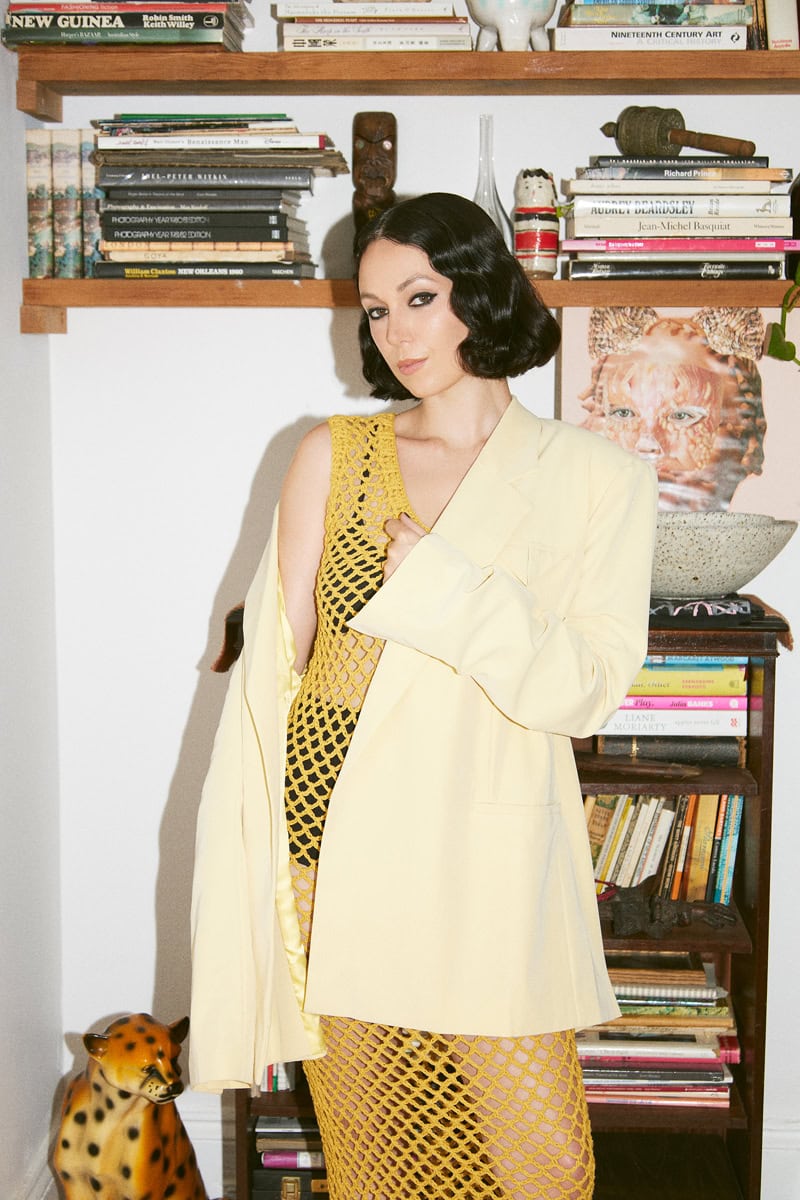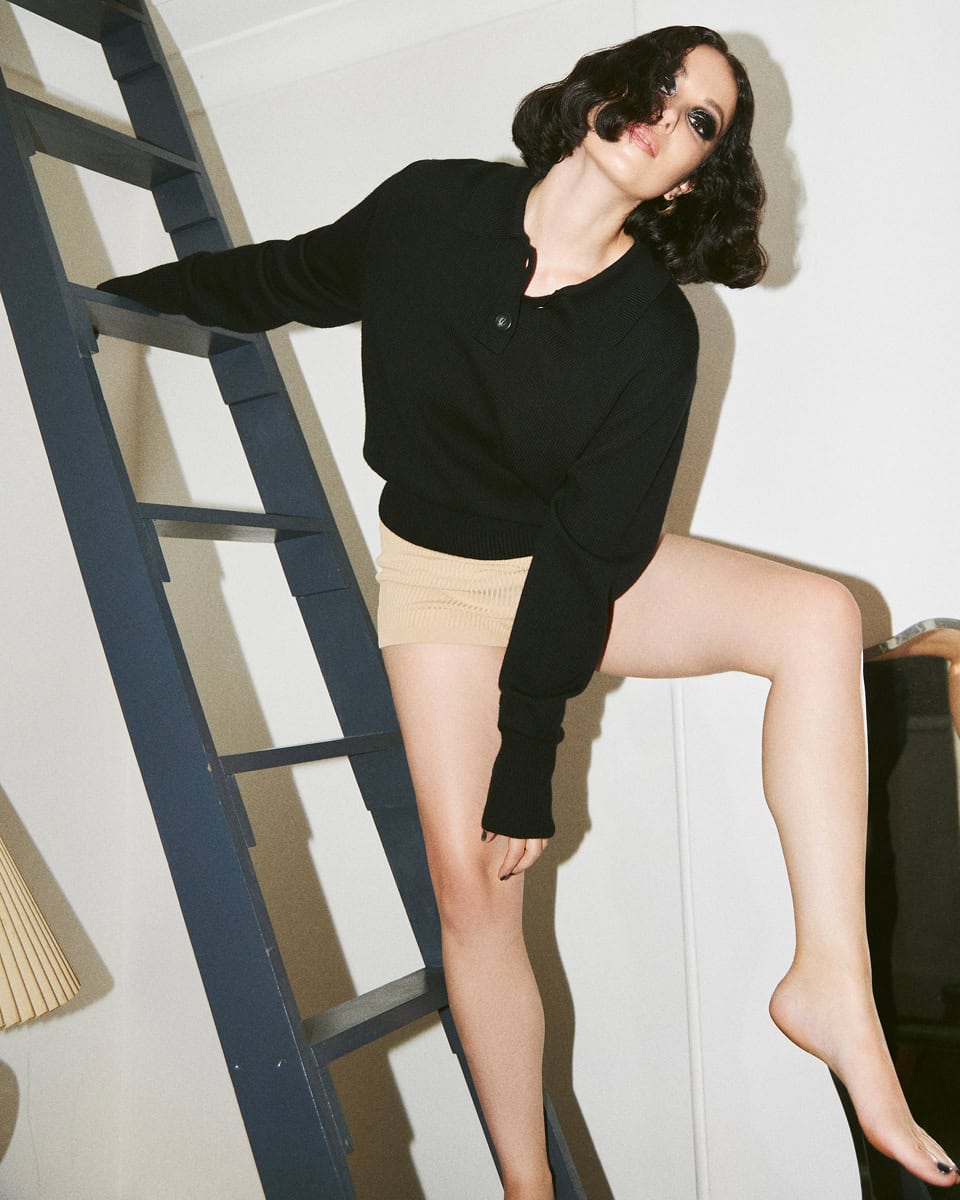It’s almost as though Kelly Lee Owens takes issue with the concept of space. She lives here and there, changing area code, time zone and sometimes even hemisphere every few months. She and her partner have just moved to Sydney, Australia: a place so very far away that she feels her Welsh roots more than ever. But it wasn’t among the kangaroos and koalas that the musician unexpectedly found herself with a new album on her hands, unplanned and quite different to the electronic pop of its two predecessors, Kelly Lee Owens of 2017 and Inner Song of 2020. It was January 2021 and Kelly was in Oslo, Norway. “I went there to see if I could create new music,” she tells me over the phone and across the 10-hour time difference with Italy. At the time, she felt as though she had entered a dream world: an electric blue sky, crisp snow falling at -16 degrees and the slightly muffled feel of being inside a souvenir snow globe.
“After 8 days, when I exported what I had made, the recording was 80 minutes and 8 seconds long.” Let me add that she was born in the eighth month of ’88 and numerology does the rest. LP8 tore into life, “as though a portal or a time machine had given me the chance to make my eighth album,” even though it was only the third. While we knew that she had no truck with the idea of space, it looks as though time has no hold over her either.
In this age of total uncertainty, Kelly wanted to connect something of the past with something of the present and somehow cast a spell over a bleak future. The resulting sound is raw, often subtle, and imbued with analog magic. Sometimes dark, at others hopeful, Kelly explains that its function is to generate expansiveness, depth, and pride. “It is the continuation of a journey, it is a place made of sound. You can visit and reflect. The lyrics revolve around creativity and self-empowerment but not like in a song: universally and cosmologically.”
The next step? Head back to Europe in June for some live shows and sets (including Ortigia in July). Only then will she decide where her next home will be. For a short while, at least.
CLAUDIO BIAZZETTI: How many people have heard the album so far?
KELLY LEE OWENS: I think you’re actually the only person outside of my press agency to have heard it. I haven’t talked to anyone about this album. You’re the first. We’re not doing a huge campaign because this album is more about art and soundscapes. It’s not a big album with a big campaign.
CB: Would it be incorrect to define it ambient?
KLO: Ambient is trendy right now, everyone’s doing an ambient album. But this isn’t ambient because there are often hard beats, made with a semi-modular drum machine. It’s all analog—no programs, no quantisations, no automations. It was all done in a single take. Press “Rec” and go. It’s totally raw, just as it is. And fuck was it liberating. In January 2021, I wasn’t interested in sitting down and starting to program drums. What for? So I could play them in clubs? That wasn’t what I needed as an artist. I needed a sound space that I could live in and invite other people into. There are more confrontational moments and other softer moments. I would call it an album of obscure female energy.
CB: And it came about at a time when we all wanted to escape from reality.
KLO: As well as a moment in which we were all wondering where we were at. I faced up to myself and, on the last track Sonic 8, I directly ask myself. Where are we? What should we do? Not just about the pandemic but climate change, the system. So you’ve got these beats that are then interrupted by ambient moments, almost haunted sounds that take me back to my Welsh roots. Like invoking the spirits of my ancestors, looking to the past to work out where to go in the future. I temporarily detached from myself. And since I couldn’t physically move, I did so with sound.
CB: It’s understandable that you didn’t use a computer. I hated screens during the pandemic.
KLO: You’re right. And I didn’t think I’d make an album for years. It wasn’t planned so what emerged was this 100% natural and organic creation. Which is perhaps the opposite of what everyone else is doing: “OK, I’ll make the biggest hit album in the world and when the pandemic ends I’ll go on a massive tour.” My album was made in 8 days and the press campaign is really tiny.
CB: Do you only produce in analog?
KLO: For most of my albums, yes. I use plugins too. But like I said, this latest one is entirely analog. I’d have quite liked some Enya-style harps at various moments but that meant opening the computer. So I thought perhaps I wouldn’t do it this time. I used a totally different interface. I sat down with the synth on my legs on the first night and I was there for six hours. It was a sonic ritual and rituals have always been important to me, both in my daily life and given my roots.
CB: Is your Welsh cultural heritage that strong?
KLO: Yes. And I feel it more than ever now because I’m on the other side of the world. I think that the arrival of secular religion in Europe destroyed the original spirituality of many cultures. A lot was burned, destroyed or made to disappear. It’s as though we Europeans don’t really know who we are, as though we have lost our identity. And this not only causes pain but leads to the appropriation of other cultures. Because we don’t know who we are and it’s not necessarily our fault. There is a very small number of people who decide the fate of the many, who in turn suffer. As I get older, it’s increasingly important for me to understand why I was taught Welsh at school and why, if the Welsh language is dying out, it’s important to keep it alive. Nobody tells you why, you have to find out for yourself.
CB: So you speak Welsh?
KLO: Not fluently but I understand it and I can write a little as well. It makes me a bit sad but it doesn’t make me less Welsh. It’s not my fault. It’s nobody’s fault, if not the English state which banned the Welsh people from speaking their own language or singing in their own language. Can you believe it? When Wales is a land of song. And I am increasingly trying to use the word Cambria for Wales, because it’s the original name and it means “friend of the earth”. Wales is an Anglo-Saxon word that means “outsider”. History and words are a powerful weapon, enough to make you feel like an outsider in your own country. That is why you need to know your past and the history of your people. I won the Welsh Music Prize, but when I was first nominated three years ago, a folk song won. A talented guy. But at the time, I thought, “Hang on: Wales isn’t just folk music.” Other people have won since then and there’s been a good level of diversity, thank goodness. The past is important but so is the present.
CB: The album wasn’t planned, do you tend to plan in life?
KLO: I plan everything. That is why I hope that people will perceive the sense of liberation in this album. In one of the spoken tracks, Quickening, there is a quote from famous dancer Martha Graham. It’s about creativity and how we shouldn’t be concerned with what other people are doing or how good they are. We all have to think about our own path and keep the channel open.
CB: Are you satisfied with your journey so far?
KLO: Yes. I have always been a great observer. I have absorbed so much of what I’ve seen, both from a public and business point of view. I have observed the errors made by people around me very carefully and I have never forgotten them. So I learned how to handle my affairs very quickly. First of all, I found myself a lawyer, then I made myself my own manager and set up my label, and I press my vinyl myself. And I have always known that for me, and I think for everybody in general, the most important thing is always being true to myself. That has always been my journey. Before even a manager, I found a little Norwegian label that would publish my work for free, I knew that it would take time but that gradually I would prove a lot of people wrong. Without compromising on creativity. And I have to say that I sell quite a lot of albums for an independent artist. That’s rare. I have a solid fanbase that buys my work and supports me: it’s amazing and I am so grateful because I’m a music nerd and I have always attracted that kind of person. There are all sorts at my live shows, from 20-year-olds to 50-year-olds.
CB: Before becoming an artist, you approached music from various different angles. First as an intern at XL Re
cordings and then an assistant in famous record stores such as Rough Trade. There was always something missing though.
KLO: I actually always knew that I would be an artist, even when I worked in those places. They were just the stepping stones that helped me to find courage, most of all. You are so vulnerable when you are intellectually honest. I don’t think any artist expects that people will like what they make. I know it might seem crazy but music is made for the people who need it. It finds you when you need it. It resonates with your frequencies, you are attracted to certain frequencies depending on what you are going through in that particular moment. It captures you or it doesn’t. But things change and music is only the reflection of your life. It is incredible that what you listen to reflects who you are and where you are in your life. My protection lies in the fact that at the end of the day, I have to like the stuff I make. Obviously the more people that like it the better. But if people hate it, that doesn’t matter. I love it and I pity people who make music they don’t really like. In that case, the people who criticise you are right because you compromised. But this is me and this is what I want to do. And I’m not somebody who leaves things unfinished. I write a song and I finish it.
CB: You have always had very clear ideas.
KLO: More than anything, I have always followed my instinct. At least, when it comes to creativity. And I didn’t start creating until 26 years old. I think it’s important to spread this message: it’s fucking amazing starting new things when you’re an adult. Society seems to want you to choose your life from a very young age. I adore people and their stories. I hang out with older people on a daily basis. It’s my favourite thing to do. The other night I had dinner with John Olson, perhaps Australia’s most famous artist. He is 94. It was me, him and some of my 67-year-old friends. They have the best conversations and the best stories. I don’t know if it’s the case in Italy but many societies around the world have lost this custom. We don’t listen to older people anymore, and they are wisdom. Björk released her first album at 27 years old. Sure, David Bowie already had five albums under his belt by 26 and that’s great too, but we’re not all made that way.
CB: You were also a nurse, weren’t you? I think that appreciating people must be a fundamental part of the job.
KLO: Yes, you’ve got to be good company. I was lucky. It was an oncology hospital and learning the perspective and wisdom of people at the end of their lives changed my existence. The clear vision, the irony. They told me their regrets and this gave me so much courage. I didn’t want to have any regrets about music. If I had been on my deathbed, I would have regretted that more than anything else. And then someone very precious to me also told me, “Stop talking about it and start doing.”
CB: It can be a bit abrupt, but it’s the best advice.
KLO: I associate this with social media. It’s all talk and nobody doing anything, fucking boring. As a young person who is old enough to remember life before social media, or even just the beginning with no adverts, I gradually started to quit. Cutting them down to only the strictly necessary. I took a step back late last year. I will definitely post again but sporadically. It is a very interesting time for social media, given the technological war that we are living through and the damage we are doing to ourselves at a psychological level.
CB: Before asking how you ended up doing the theme song for the FIFA Women’s World Cip, I wanted to ask whether you like football?
KLO: My dad would take me to Old Trafford to see Manchester United when I was little. He had season tickets and we went to the family area. I remember the incredible atmosphere: watching on TV didn’t really do anything for me but when you’re immersed in the electric atmosphere of the stadium, with all the chants, it sticks with you. Obviously I like rugby too, as a good Welsh person should. It’s like music. It brings people together. I mean, it can be a bit more violent at times. But it’s a moment of communion.
CB: And what about the FIFA theme song?
KLO: It almost makes me laugh because it feels so unreal. It was a surprise. They were looking for a female producer and wanted to work with someone who loved nature and put nature in their sound. I won’t lie—they made a great choice! And I really like epic crescendos. I was a bit nervous to begin with but then I said, “You know what? I’ll do it.” We had countless super professional meetings with loads of people. They have a really amazing team with so many women. People who really believe in what they’re doing, not like most companies. They are really attentive to promoting Australia and New Zealand too and I was moving there soon by chance. I can’t wait until next year. I really had a feeling with this thing. You’ve got to have feeling, even when an artist you like sends you a remix to do. If there’s no feeling with the track, I won’t do it.
CB: Has that ever happened?
KLO: Yes, on multiple occasions. I won’t name names but important artists too. I would have only been doing it for money but that’s not the point. And you would also be amazed to hear how many wealthy artists offer half or less of the fee I ask for. Perhaps I’m crazy but that’s how I feel. I’m sorry, but you can’t afford me [laughs].
